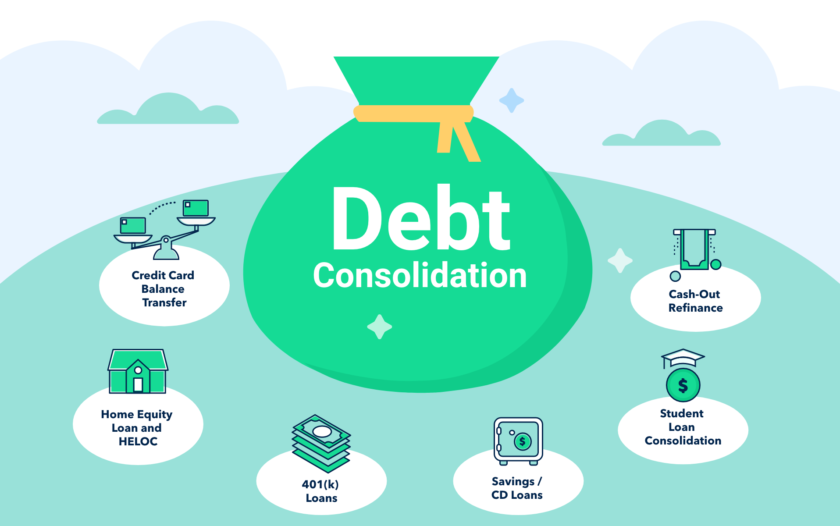Debt Consolidation Loans
Debt Consolidation Loans
Blog Article

Navigating Homeowner Loans: A Comprehensive Guide
In the realm of personal finance, homeowners often find themselves with a valuable asset at their disposal: their property. Leveraging home equity through homeowner loans can offer a lifeline during financial crunches or provide opportunities for investments or major expenses. However, it's crucial to tread carefully and understand the nuances of these loans to make informed decisions. Let's delve into the world of homeowner loans, exploring what they are, how they work, and the considerations to keep in mind. Explore secured loan CCJ to learn more.
Understanding Homeowner Loans
Homeowner loans, also known as home equity loans or second mortgages, allow homeowners to borrow against the equity in their property. Equity is the difference between the current market value of the home and the outstanding balance on the mortgage. These loans are secured by the property itself, making them less risky for lenders and often resulting in lower interest rates compared to unsecured loans.
How Do Homeowner Loans Work?
Homeowner loans typically provide a lump sum payment, which can be used for various purposes such as home improvements, debt consolidation, education expenses, or even to fund a vacation. The amount you can borrow depends on factors like your credit score, income, the value of your home, and the amount of equity you have built up.
Repayment terms for homeowner loans vary but commonly range from five to thirty years. During this period, borrowers make monthly payments that include both principal and interest. Failure to repay the loan can result in the loss of the property through foreclosure, underscoring the importance of responsible borrowing and budgeting.
Types of Homeowner Loans
There are two primary types of homeowner loans:
Home Equity Loans: With a home equity loan, borrowers receive a fixed amount of money upfront, and the loan is repaid over a predetermined period with a fixed interest rate. This provides predictability in monthly payments, making budgeting easier.
Home Equity Lines of Credit (HELOC): HELOCs function more like a credit card, with a predetermined credit limit that borrowers can draw from as needed. Interest rates are typically variable, meaning they can fluctuate over time. Borrowers have flexibility in accessing funds and only pay interest on the amount borrowed.
Considerations Before Applying
Before diving into a homeowner loan, it's crucial to consider the following factors:
Financial Stability: Evaluate your financial situation to ensure you can afford the additional debt. Consider factors like job stability, existing debt obligations, and potential changes in income.
Interest Rates and Fees: Compare interest rates, closing costs, and fees from different lenders to secure the most favorable terms. Pay attention to whether the rates are fixed or variable and how they may impact your monthly payments over time.
Loan Terms: Understand the repayment terms, including the duration of the loan and the structure of payments. Longer loan terms may result in lower monthly payments but could cost more in interest over time.
Impact on Equity: Borrowing against your home equity reduces the stake you have in your property. Consider the long-term implications on your net worth and financial goals.
Alternatives: Explore alternative financing options, such as personal loans or refinancing your existing mortgage, to determine the best fit for your needs.
Benefits of Homeowner Loans
Despite the risks, homeowner loans offer several benefits:
Lower Interest Rates: Secured by the property, homeowner loans typically come with lower interest rates compared to unsecured loans, making them a cost-effective borrowing option.
Tax Deductions: In some cases, the interest paid on homeowner loans may be tax-deductible, providing potential savings for borrowers. However, recent tax reforms have imposed limitations on this deduction, so it's essential to consult with a tax advisor for guidance.
Access to Funds: Homeowner loans provide access to large sums of money, making them ideal for significant expenses or investments.
Conclusion
Homeowner loans can be a valuable tool for unlocking the equity in your property and achieving various financial goals. However, they also come with risks and responsibilities that require careful consideration. By understanding how homeowner loans work, assessing your financial readiness, and exploring your options, you can make informed decisions that align with your objectives and pave the way towards a brighter financial future. Remember, borrowing against your home is a significant financial commitment, so proceed with caution and seek professional advice if needed.
Report this page